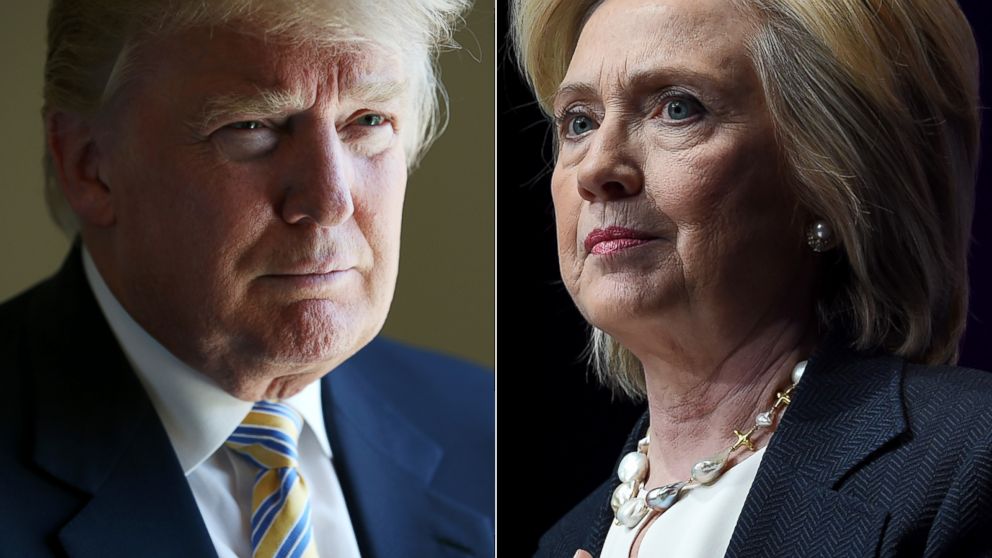Monday
In anticipation of Election Day, I went back and looked at all the blog posts I have written this past year on Donald Trump and Hillary Clinton. (Click on their names to get the full list.) I list here almost every literary character that I have made. As the more colorful and terrifying of the two, Trump got many more posts. As Milton understood in Paradise Lost and as William Blake pointed out, it’s easier to make a towering egotist interesting than an administrator.
An observation on my political prejudices: Whereas I don’t see Hillary as Lady Macbeth, Ken Kesey’s Nurse Ratched, Baum’s Wicked Witch of the West, or Spenser’s Duessa, I have conservative friends who do. My comparisons are not unassailable, and they would write different essays.
The usefulness of the comparisons for me is that they help me sort through the different dimensions of the issues, often opening up insight or at least perspective. As Sir Philip Sidney noted, poesie helps us to both understand and emotionally experience what is before us.
Donald Trump Literary Comparisons
–Citizen Kane (he’s so close to Charles Foster Kane, it’s scary)
–Proteus (hard to pin down)
–Willie Stark from All the King’s Men (like Stark, Trump upended the party establishment)
–Shakespeare’s great egotists (Macbeth, Richard III, King Lear)
–Noboru Wataya, the soul-sucking villain in Haruki Murakami’s Wind-Up Bird Chronicle
–John Gay’s Mac the Knife (two great escape artists)
–Handy Nicholas from Chaucer’s “Miller’s Tale” (both grab women’s private parts)
–Satan in Paradise Lost (another supreme egotist who opens up the gates of hell)
–Bounderby in Hard Times (complains all the time about governmental regulations while stiffing his workers)
–L. Frank Baum’s Wizard of Oz (both of them are con men capable of fooling the multitudes)
–Coleridge’s Kubla Khan (both are into building walls)
–the packing plant owners in The Jungle (or at any rate, they would favor Trump’s attack on regulation)
–Twain’s outrageous “presidential candidate” (who like Trump does not mince words)
–Marc Antony (capable of arousing crowds to violence, unlike his earnest but dull opponent Brutus)
–Melville’s Confidence Man (Is Trump America’s greatest con man ever?)
–Lewis Carroll’s Red Queen (his escalating outrageousness has kept him always on the front page)
–Octavia Butler’s Senator Andrew Steele Jarret in The Parable of the Talents (an almost exact match)
–Anthony Trollope’s Augustus Melmotte (another con man and a bankrupt)
–George Orwell’s Big Brother (they borh share a contempt for facts)
–Vice which becomes normalized (a process Pope describes in Essay on Man)
–a wannabe Homer (for his epithets—“Little Marco,” “Crooked Hillary”)
–Sinclair Lewis’s Buzz Windrip (from It Can’t Happen Here) appealing to Mark Twain’s Pap
–Edmund in King Lear (“Now, gods, stand up for Trump!”)
–Goneril in King Lear (I argued that Obama is to Trump what Albany is to Goneril)
–Julius Caesar (unfortunately NeverTrump plotters couldn’t pull off what Cassius and Brutus did)
–the plague in Oedipus, Bonaparte in War and Peace, and Mary Shelley’s monster (The example of the creation who turned on his creator has been cited so many times this past year that I no longer notice it.)
–the corrupt politician in the Raymond Carver short story “Why, Honey?” (with the mother being akin to Trump’s enablers)
–Tolkien’s Ring Wraiths (who have been hollowed out by a lust for power—or in Trump’s case, by his neediness)
–C. S. Lewis’s White Witch, called forth by Nikabrik in Prince Caspian (anything to save the land from Hillary)
–Dostoevsky’s Grand Inquisitor (Trump’s supporters want to be led, not to exercise their free will)
–Yeats’s rough beast (stalking towards Washington to be born)
–Prince Vasili in War and Peace (another cynical man who will say anything to get his way)
–The Duke of Bilgewater (Twain knew a con man when he saw one)
–Homer’s Cyclops (unfortunately the GOP didn’t succeed in gouging out his eye)
–Bill Gorton in The Sun Also Rises (actually this is a contrast—both are politically incorrect but Gorton in an acceptable way)
–Kipling’s Dead Statesman (“I could not dig: I dared not rob: /Therefore I lied to please the mob.”)
–Robinson Crusoe (who is obsessed with building walls)
–Tom Buchanan (spoiled rich kid who, with his Daisy, “smashed up things and creatures and then retreated back into their money or their vast carelessness”)
–Big Jim in Bob Dylan’s “Jack of Hearts” (“he took whatever he wanted and he laid it all to waste”)
–Pennywise in Stephen King’s IT (another clown who engages in vile projections)
Hillary Clinton Literary Comparisons
–wonkish Hermione Granger (many have noted this one)
–Emma Woodhouse (flawed but ultimately has the right values)
–not Lady Macbeth (although this is caricature thrown at her)
–the women massacred by the angry men in Toni Morrison’s Paradise (“lock her up”)
–Moby Dick (with the GOP as the obsessed Ahab, who believe he has been castrated)
–Arthur Miller’s Salem witches (Hillary is often called something that rhymes with witch)
–Amy Dunne, the slasher in Gone Girl (not a “cool girl”)
–Not Ken Kesey’s castrating Big Nurse Ratched (but that is how Rush Limbaugh sees her)
–Barrie’s practical Wendy (as opposed to Bernie’s idealistic Peter Pan)
–Not Duessa from Faerie Queene (who arose out of a long Medieval history of misogyny)
–Tolstoy’s Pierre being questioned by Bonaparte’s tribunal (who are determined to find him guilty)
–Not the Wicked Witch of the West (I predicted from the first that she would be cast in this role and so she has been)
–Desdemona (I tweeted that her use of a private e-mail server were almost as innocent as that handkerchief)
–Nora in Doll’s House (she won’t stay properly at home)
–Oedipus (here’s hoping that, from the beatings she has taken, she has learnt a deep wisdom)


